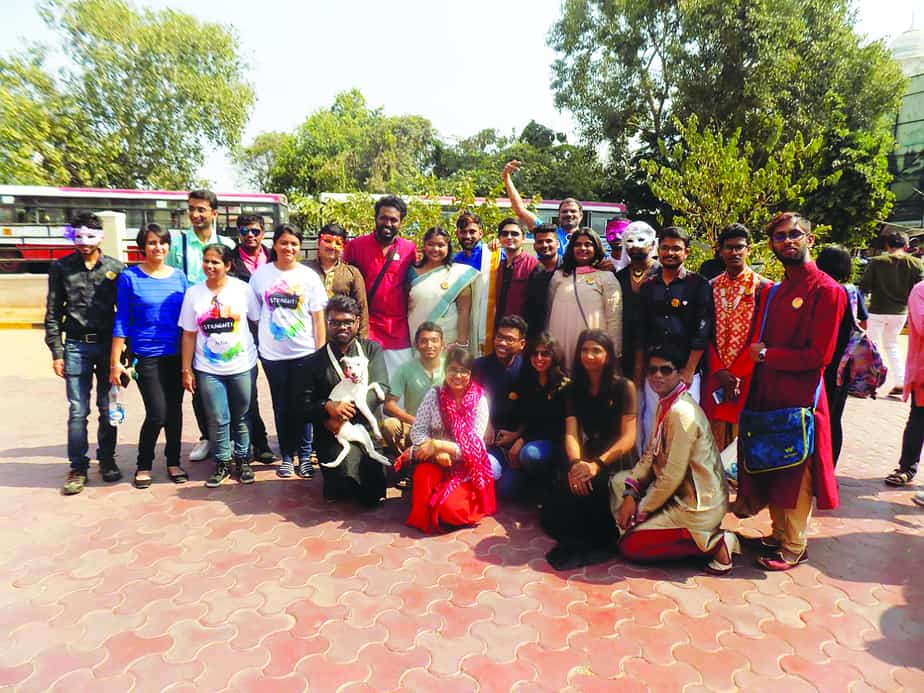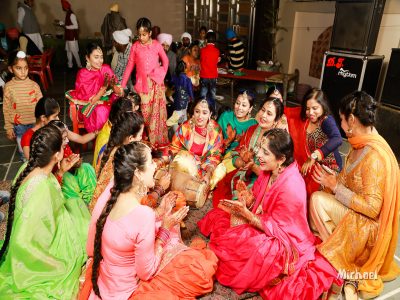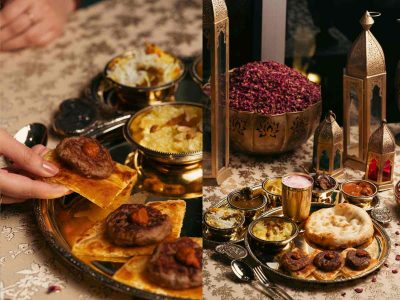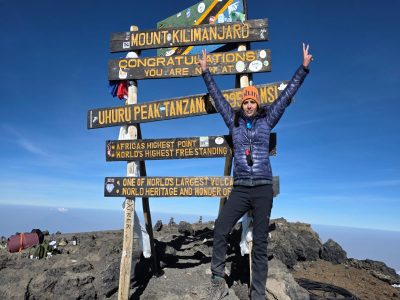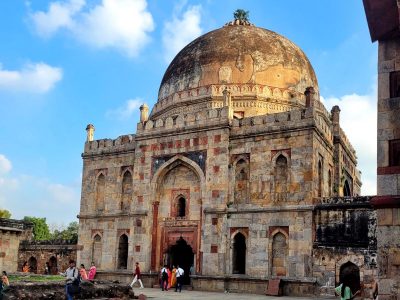In a country often plagued with a dangerously dichotomous society, the occasional splash of rainbow colours is a welcome change. International Pride month is here, and India is by no means behind in championing the fight for the LGBTQIA community to be heard
The Patriot spoke to some proud members of the Pride community in India, and we were rewarded with the truest picture of what our country needs to become for it’s people today. An in-depth interview with filmmaker Faraz Arif Ansari, brings us the nuances of life, for those cast-aways of our societies who are not permitted to love.
Faraz Arif Ansari (Film-maker)
Q: What does ‘Pride’ mean to you?
A : Pride to me is a sense of deeply strong self-esteem. It is associated with the public acknowledgment of one’s homosexuality to take a stance against all the discrimination and violence that the LGBTQIA+ community has been going through. ‘Pride’, to me, is to claim equal opportunities, equal rights, equal love, dignity, a sense of belonging, increasing visibility (Yes, we are your children and we exist!), building a community and celebrating sexual diversity beyond the dogmas and stigmas of genders. It is also to gently erase the differences that divide us and hope for a future where similarities are celebrated and every individual is cherished and loved for who they are. No judgements, no discriminations, just acceptance, equality and love. It’s like the warmth of golden sunshine on a cold winter’s morning, beautiful, gentle and a reminder of the beauties of nature.
Q: How do you identify yourself on the broad spectrum of the LGBTQIA+ scale, and how accepting has everyone around you been to this acceptance of yourself?
A: Gender is a social construct. I don’t believe in it. There are days when I wake up feeling one way and there are weeks when I want to live in some other way, in some other form, with a new identity. Gender and identity, like nature, are fluid. We just need to find the gravitas to see it the way it is intended to be. The idea is always to celebrate who you are, how you feel, in that given moment. Why box ourselves into the broad spectrums? Life is too fleeting to be boxed-up. I feel the same way about pronouns. I am this and I am that and I am everything in between and beyond. I am limitless.
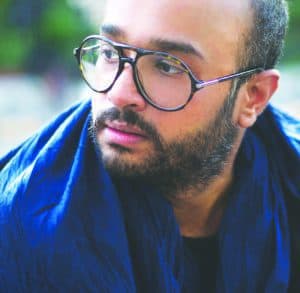
Q: Under what notions or tenets did you make your film Sisak, and what were some of the challenges you faced along the way (Sisak is India’s first silent LGBTQ love story)?
A: Sisak was an act of courage. I had to do it for myself, else I would’ve lost faith in my vision and the belief that I can tell a story with all honesty and the right craftsmanship required to tell a poignant tale of forbidden love, sans words. After facing rejections for over three years, running around from one production house to another, trying to get my first feature film about a homosexual protagonist produced, I landed myself into depression. Imagine receiving countless emails telling you how much they love your script but they won’t be able to produce it because it has a homosexual protagonist. So much for art, diversity and democracy! So one morning, I woke up, with this newfound courage. I knew I was going to find a way to make Sisak. What followed after that was a series of ‘interesting’ scenarios – I sold my car, I put my apartment on rent, I broke my savings and I geared up to make India’s First Silent LGBTQ Love Story with the help of a few industry friends who believed in the story that I had to tell. The plot twists didn’t end there. After finalising a cast, the actors backed out five days before the shoot – “We might lose our commercial market if we do a gay film…”, they told me via text messages. I had to find my new cast just days before the shoot but somehow, the universe has been very kind and everything started moving in its place and we managed to shoot the entire film in a record of 6 hours, over the period of two nights, in the Mumbai local trains, without any permissions. Today, Sisak is the first Indian film to have won 43 International Awards. I am a very proud parent.
Q: Why would you say your film is an important watch for the Indian audience?
A: Indian audiences have always seen queer characters being used as comic relief, reducing them into stereotypes. Initially, cinema was considered as a symbol of art and prestige. Now, it is reduced to business and figures. Given this new paradigm, it is easier to make a mockery out of someone, get an easy laugh and laugh your way to the bank. Filmmakers have forgotten how powerful cinema can be and how it can affect the subconscious of an individual. Filmmakers these days don’t care about social repercussions. They have forgotten that filmmaking is a social, moral and political responsibility. With Sisak, I am trying to bring forth a narrative, where there are no soppy dialogues trying to convince you about the plight of homosexuals in India, nor does it stereotype in any sense. It is an earnest attempt in showing two queer people as they are, sans judgement, sans mockery. What I have learned from the extensive feedback from our screenings at film festivals is that the audiences forget that the two actors on screen are men, they see them as two souls, longing to love one another, but are so afraid to do so because of the social, moral and political stigmas and realities attached to who they are. Sisak attempts to blur away the lines of ‘us’ and ‘them’ and tell a universal story of forbidden love that almost everyone can relate to regardless of their gender or sexual preferences. I think, once people start seeing it in this light, the dogmas will start fading away. Slow and steady.
Q: Where do you think our country stands when it comes to the visibility of Pride communities, as compared to other countries?
A: I have been very fortunate to have traveled to many countries and interacted with different audiences from various communities, in the last one year with Sisak. Two weeks ago, I was in Canada, attending a film festival where Sisak was being screened. One day, I was invited to a school in a small town in Canada to address a bunch of school children and discuss with them various subjects about LGBTQ, gender, pride, etc. The discussion happened in the school’s gymnasium and was attended by over 300 children. The youngest being 10 years old & the oldest being 18. To say that I was overwhelmed would be an understatement. These children that’ll form the next generations, are being nurtured and made to understand, interact and ask questions, seek answers about everything they wanted to know by individuals from the community. How awesome is that! During the discussion, many children proudly came out to us as queer, in front of their entire school. That’s the kind of respect and nurturing they have. I had to constantly hold myself from breaking down in front of them for it was so overwhelming. Given what I have seen, India is generations away from coming anywhere close to this. If I get to see even a glimpse of something close to this back home, in my lifetime, I will die a happy man.
Q: How does an artist like yourself go about creating awareness about the identity crises our societies create for those who deviate from the sexual ‘norms’?
A: My medium of expression is cinema. After Sisak, I have decided to explore a subject that is perhaps, a bigger taboo in India. Yes, homophobia is huge but transphobia is bigger and deeper. My first mainstream feature-length film, titled Vultures, is about a transgender woman in her mid 60’s. With Vultures, I hope to open discussions in the mainstream about gender, sexuality and more importantly, identity. While researching for Vultures, I have heard people say, “But why do they need to transition? What is the need for them to change their gender? If they are born with a certain sex, why do they want to change their gender? They should not play God,” etc, etc. We, as Indians, do not understand the concept of identity. Looking at Indian mythology, most Gods are transforming from one gender into another gender, seamlessly. If we can see Gods do it, why can’t we see humans do it? Given how religious Indians are, why is it so hard for us to relate to someone’s transgender identity? I plan to explore all of these with Vultures. The plan is to keep the story rooted in the strong emotional pillars of family, love, closures & acceptance.
Q: Is there a message you would like to share with our readership?
A: To aspiring filmmakers out there: Remember that filmmaking is a privilege that comes with immense social, moral & political responsibilities. While you tell your story, always make sure that while you keep it entertaining and engrossing, always be attentive and aware to the effect you are going to have on the subconscious mindsets of the people who will be watching your film. You have been given an opportunity to truly bring in a change, even if it is small. Use it wisely.
To everyone else out there: We are perhaps the only planet in millions of lightyears to have this beautiful, wonderful ecosystem that allows life to flourish, that nurtures us immensely. We haven’t found our kind anywhere else across the depths of darkness, as far as modern-day science has been able to reach. If we can be kinder to one another, gentle in our ways and being, and being responsible towards our planet, our only home, perhaps, we might have a chance to leave behind a better home for the next generation that will have bigger dreams than all of us.
To dreamers out there: Dream. Don’t ever stop dreaming, come what may. And if you believe in your dreams, with all your heart and soul, you’ll find a way to make them come true. The Universe truly works on the law of attraction. Believe. And then watch miracles unfold. And while you do all that, remember, to love. Always.
Anil Kohli, Vice President of Mobbera Foundation, based in Telangana, also agrees with Ansari’s words. The Mobbera Foundation has been involved in creating awareness programmes in Hyderabad for LGBTQIA related issues, as well as creating platforms for artists within the community. Kohli identifies as a gay man, and reveals that it took him a good two years into his adulthood to realise this. He reiterates that while Indians accept their Gods for sexual deviations, they are reluctant to accept the same in their own realities – “We worship them as Gods, but we are not ready to accept our own children, friends and colleagues!” He believes that the key is in coming out of the closet to yourself and others and begin talking about the problems. He frets about the number of cases of sexual harassment against queer people that go unreported, owing simply to the culture of shame created around their sexuality. “Pride, for me, is a lifeline. It is a platform for me to become more open with the whole community of the entire city, on a day to gather, share love, celebrate and console each other,” he says.
Preeti Singh (name changed), a Delhiite and brand new graduate, identifies as a bisexual cisgender female, and as yet, has come out to a few close friends. She says that she’s observed that the teenagers and young adults in India have become much more accepting and more people are coming out of the closet than before. She even points out that sex education in India is still lacking severely, and people are yet to learn to distinguish between sex and gender as two separate concepts. The blanket rejection of queer people needs to be changed, and in her opinion the Pride parades and movements are changing that. In Preeti’s experience, the most important step to coming out is self-awareness, because it can be a difficult process for many. Within the community as well, some discriminations abide – but the biggest hurdle, she says, are the binaries that exist – “It is either black or white. Blue, green, pink and purple also exist on the same colour palette, equally human and beautiful!” Karan Thapar, in his final semester of Hotel Management, identifies as a cisgender gay man, and is very proud of the Pride community in Delhi. “I just get inspired by how they embrace themselves for who they are and how they spread love and happiness in their own ways,” Karan stresses that a comprehensive sex education will not help bring about open-mindedness, but also help to avoid all kinds of health risks. He believes that the biggest obstacles are to come out to one’s family and face homophobia in spaces like school, college or work. “Love is love,” he says, “it does not harm anyone, and there’s nothing wrong with it, that’s what people should understand and accept.”
Rohini, now studying psychology, after long consideration has come to identify herself as just queer, “I like the fact that it’s an umbrella term to refer to both sexuality and gender, and that it’s a word that the community has reclaimed from a slur to a badge of honour.” Having done an an internship at an NGO educating low income school kids about sex education, Rohini feels very strongly about the issue of inadequate sex and gender equality education in our country. She speaks of the absence of an understanding of consent and respect, and stresses that sex education is of utmost and immediate importance in schools, income groups, and every region of the country. Among the multitude of reasons that have kept India from taking significant steps forward in the fight for the queer community, Rohini attributes the plight to “Ignorance, unwillingness to listen, resistance to change, and blind moral or religious reasoning.”
At the end of the day, it just takes a simple act of putting oneself in the shoes of another, and wondering about what great costs we have attached to some peoples’ identities. So much so, that they become prey to endless discrimination and bullying. As a society, we need to assess what we want to perpetuate, a culture of hate and intolerance, or a culture of acceptance. The clouds aren’t entirely grey, however, the rainbow flag is waving high, and there is a faint scent of freedom in the air. The Pride Movement is India has begun. When will you join in?

